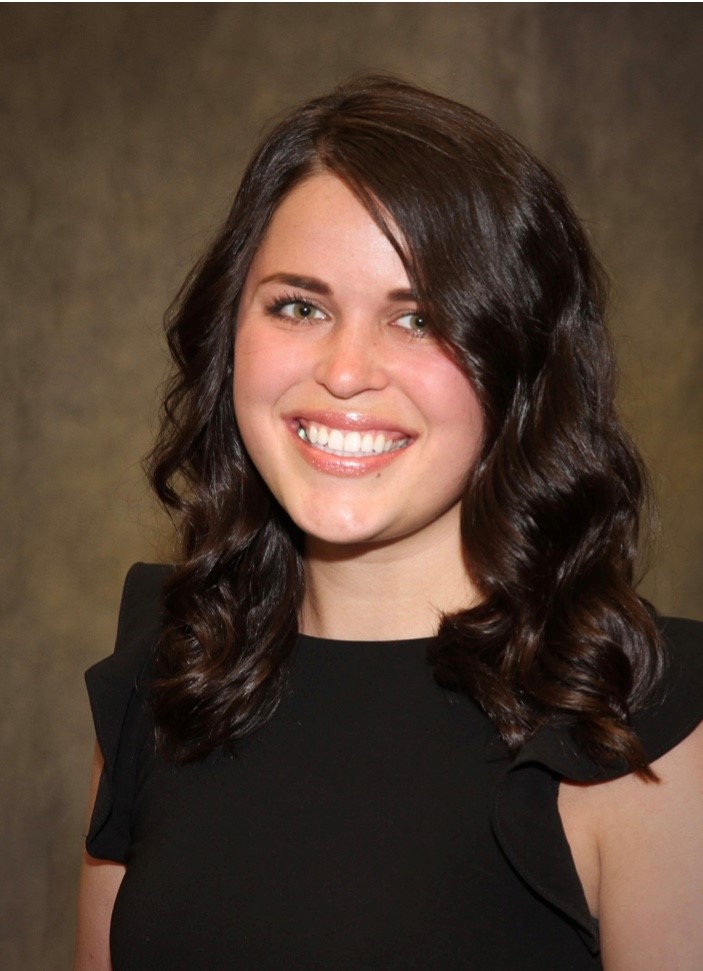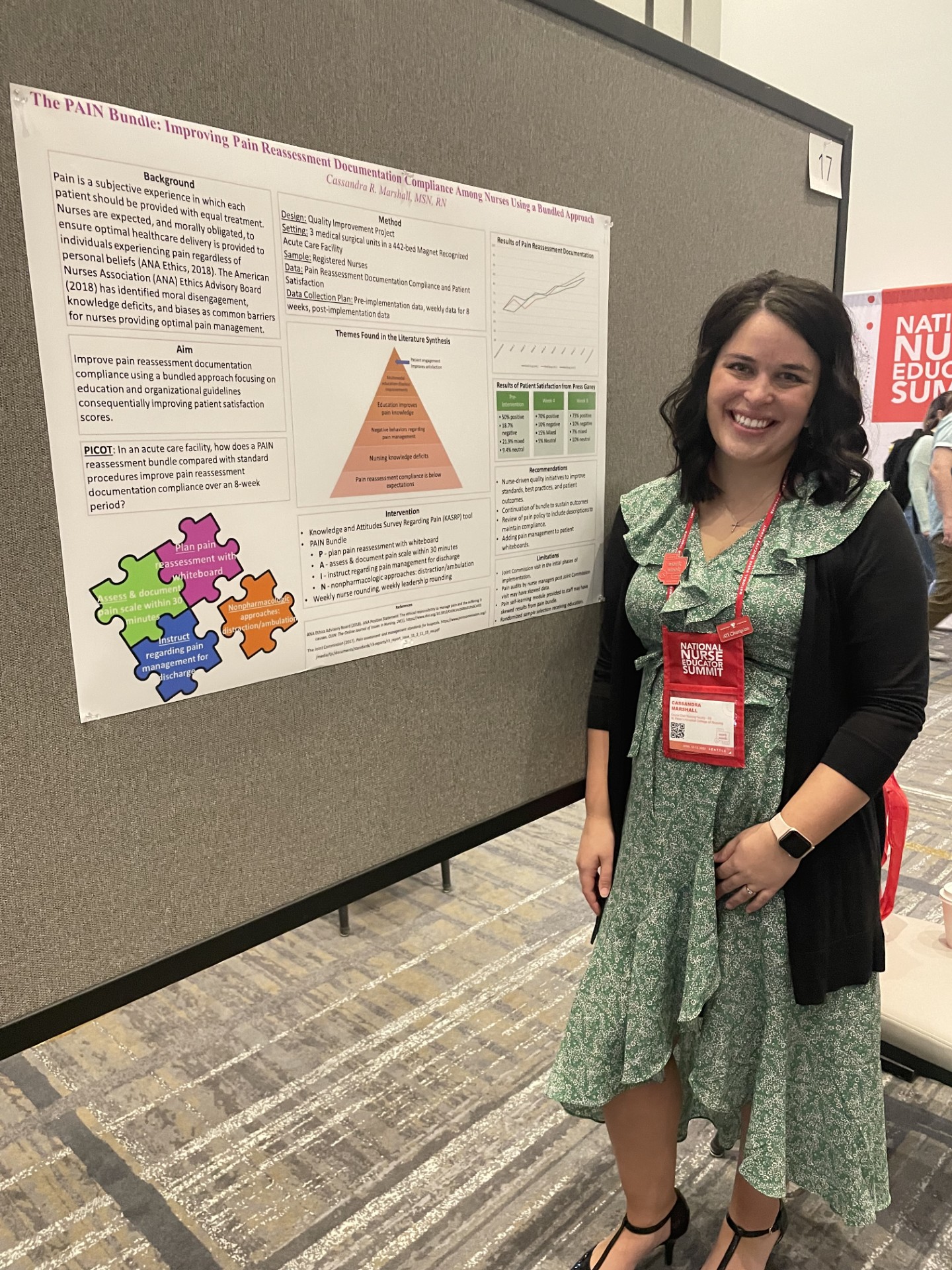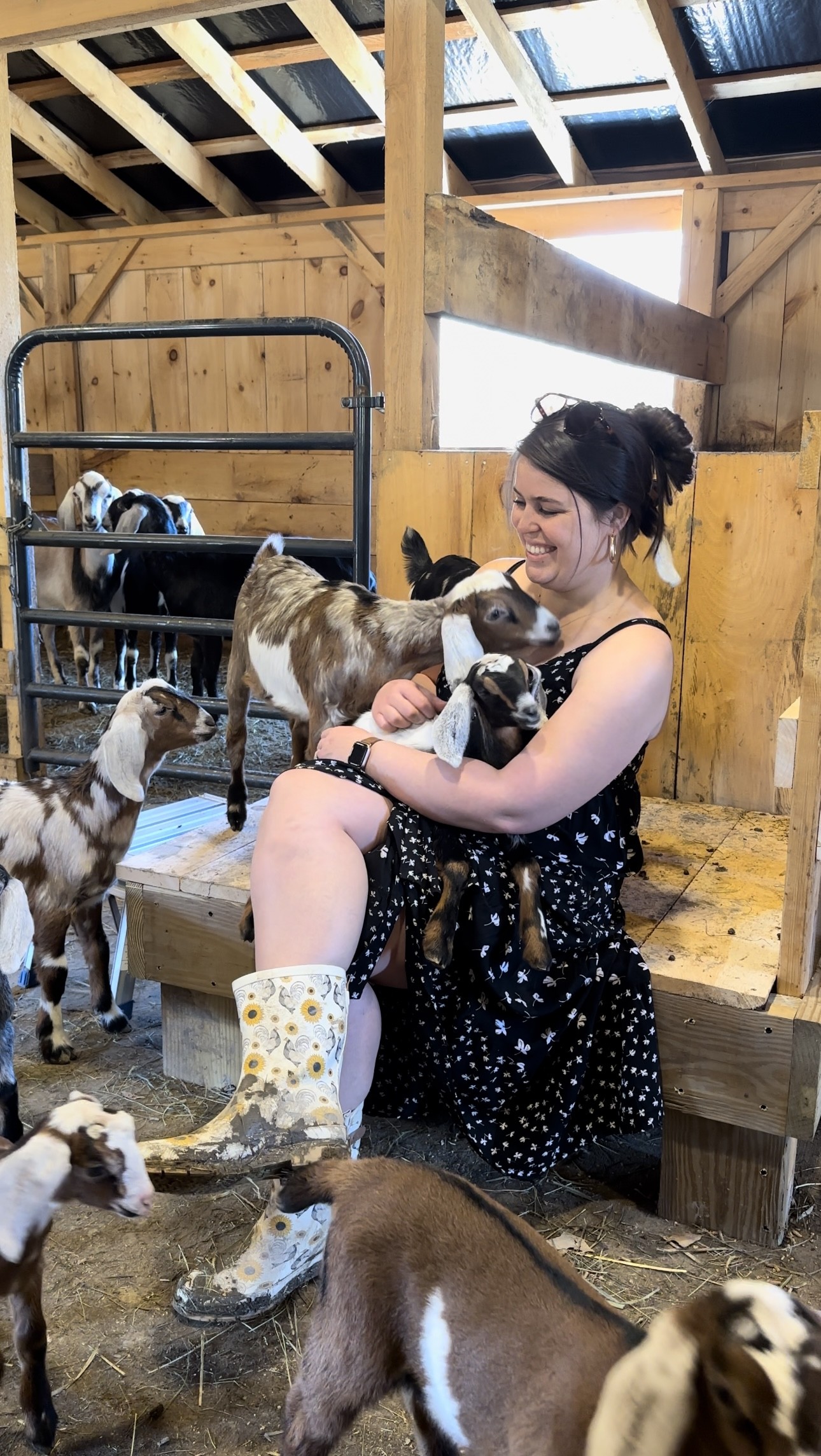Q&A with Cassandra Marshall, Director of Nursing at UAlbany

By Erin Frick
ALBANY, N.Y. (July 2, 2024) — In Spring 2024, the University at Albany welcomed Cassandra Marshall to lead the nursing program at the College of Integrated Health Sciences. Marshall comes to UAlbany with deep nursing experience, including direct patient care as well as teaching in clinical and higher education settings.

Marshall began her career as a registered nurse (RN) at St. Peter’s Hospital in Albany, where she served for over a decade treating patients in diverse units including cardiology, gynecology and oncology. Early in her St. Peter’s tenure, Marshall began mentoring fellow nurses at the bedside and soon moved into senior teaching roles within the hospital.
Prior to joining UAlbany, Marshall served as the chair of Nursing at The College of Saint Rose. Her primary research interests include emotional intelligence, patient care, gerontology and cardiology, as well as areas specific to nursing education including simulation and pre-licensure training for undergraduates.
Marshall holds a BS in Nursing from Russel Sage College, an MS in Nursing Education from Western Governors University and a Doctor of Nursing Practice from Capella University.
Here, Marshall sheds light on her professional pathway, her philosophy on nursing education and plans for the future of nursing at UAlbany.
What inspired you to enter the field of nursing and, ultimately, nursing education?
What inspired me to enter the field of nursing was a personal journey shaped by a family member, a role model whose dedication to patient care ignited my passion for nursing. This inspiration, paired with a desire to make a tangible difference in the lives of others, led me to pursue my Bachelor of Science in Nursing at Russell Sage College. From there, I embarked on a career of continuous learning and growth, transitioning into roles at St. Peter’s Hospital where I enhanced my clinical expertise and leadership skills as a Registered Nurse in cardiology/telemetry.
My dedication to nursing excellence was recognized with a DAISY (Diseases Attacking the Immune System) Award for Extraordinary Nurses — an honor that underscores my commitment to compassionate patient care and clinical leadership. Additionally, I played a pivotal role in creating and advancing the NICHE (Nurses Improving Care for Healthsystem Elders) initiative, collaborating with interdisciplinary teams to enhance care for geriatric patients across healthcare settings. These experiences have enriched my journey and fueled my passion for nursing education and patient advocacy.
My path in nursing education began with mentoring students at the bedside. As Course Chair at St. Peter’s Hospital College of Nursing, I developed and implemented effective teaching strategies to ensure alignment with accreditation standards and foster a supportive learning environment.
My true passion lies in improving the education provided to nursing students to enhance their professional journey in nursing and ensure they are well-prepared to make meaningful contributions to healthcare.
What do you enjoy most about teaching nursing?
Teaching nursing is a profound joy for me, driven by "lightbulb moments" when students connect theoretical knowledge with real-world clinical practice. Watching students grasp complex concepts and apply them in patient care settings is extremely fulfilling. I am passionate about promoting students’ curiosity and nurturing their growth, tailoring learning experiences to match student interests and instilling genuine enthusiasm for nursing. By fostering this connection between classroom learning and clinical application, I love empowering students to develop into confident, competent healthcare professionals dedicated to improving patient outcomes.

In the hospital setting, I have served as a mentor across various disciplines, including telemetry, gynecology/oncology and geriatrics. As a Level 3 RN, I led quality improvement initiatives aimed at enhancing patient experiences and outcomes. I mentored novice nurses at the bedside, providing guidance on clinical skills, critical thinking and evidence-based practice. My role extended to teaching Certified Nursing Assistant (CNA) classes and specialized telemetry courses, where I promoted a culture of continuous learning. My experience in bedside mentoring allowed me to guide new nurses through the complexities of cardiac care, pharmacologic treatments and geriatric patient management, emphasizing not only technical skills but also compassion and patient-centered care.
In academic settings, I use my love for teaching to create curricula that improve learning experiences while matching current clinical best practices. I have developed innovative courses and integrated interactive elements such as games and activities to make learning engaging and impactful for nursing students. These efforts aim to prepare future nurses to excel in diverse healthcare environments by instilling critical thinking, problem-solving skills and a deep understanding of patient care dynamics.
How can advanced degrees benefit nurses and the patients under their care?
Pursuing advanced degrees in nursing prepares nurses with the knowledge and skills necessary to lead quality improvement projects and implement evidence-based practices that impact patient outcomes.
Advanced degrees not only deepen clinical expertise, but also provide nurses with advanced skills in leadership, research and specialized areas of practice. This additional training is crucial as it prepares nurses to take on more complex clinical responsibilities, lead healthcare teams and contribute to evidence-based practice and policy development. Advanced degrees also enhance career mobility, increase earning potential and empower nurses to play pivotal roles in addressing healthcare challenges and improving patient outcomes. As healthcare continues to evolve, the importance of advanced education for nurses becomes increasingly evident in ensuring high-quality care delivery and shaping the future of healthcare systems.
In a clinical setting, advanced training can be especially useful when it comes to identifying and creating solutions to address gaps in care.
During my time at St. Peter's Hospital, I led projects to improve nursing care and patient outcomes. One significant initiative involved spearheading the NICHE (Nurses Improving Care for Healthsystem Elders) program, which transformed our facility into a senior-friendly environment. This involved implementing strategies to reduce complications among geriatric patients such as fall prevention measures, sensory deficit aids and staff training to improve patient engagement in care.
Another impactful project focused on stroke care, where I developed and implemented an educational program on dysphagia and NIHSS (National Institutes of Health Stroke Scale) assessments. This initiative aimed to ensure consistent and thorough stroke screening upon admission or change in patient status, maintaining our facility's 100% compliance with stroke designation standards. Additionally, I led the implementation of a pain bundle initiative to improve nurses' compliance with pain reassessment documentation and enhance their approach to pain management.
What are the most important aspects of nursing education?
Some of the most crucial aspects of nursing education incorporate a robust blend of classroom learning, research and clinical experience. Classroom lessons provide the foundational knowledge and skills essential for clinical practice, while research fosters evidence-based decision making and innovation in patient care. Clinical placements and simulations bridge theory to practice, preparing nurses to navigate real-world healthcare challenges effectively.
My passion for emotional intelligence in nursing education extends beyond technical skills and centers the importance of compassion and patient-centered care. By integrating emotional intelligence into nursing education, students learn to empathize with patients, make connections between their actions and patient outcomes and effectively manage complex healthcare scenarios. This holistic approach not only improves patient care, but also develops a culture of empathy and excellence in nursing practice, ensuring that nurses are prepared to meet the diverse needs of their patients with skill and compassion.
At UAlbany's nursing program, I aim to seamlessly integrate these elements. I envision enhancing classroom instruction with interactive and case-based learning approaches that encourage critical thinking and knowledge application. An emphasis on research will cultivate a culture of inquiry among students and faculty and promote continuous improvement in healthcare delivery.
Additionally, I intend to expand experiential learning opportunities through strategic partnerships with healthcare institutions, ensuring our students receive hands-on training in diverse clinical settings. By prioritizing these aspects, UAlbany's nursing program will produce graduates who are not only clinically adept, but also equipped to drive innovation and excellence in nursing practice.
What are you most excited for in your new role at UAlbany?
I am most excited about continuing my journey of expanding nursing programs to better serve the community. I look forward to developing innovative curricula to prepare our students to excel in the evolving healthcare landscape. Additionally, I am eager to establish new affiliations with partners and foster collaborations that enhance our educational offerings and create meaningful opportunities for our students. This role presents an inspiring opportunity to contribute to the growth and impact of nursing education, ensuring our graduates are well-equipped to make significant contributions to healthcare.

What do you enjoy doing in your spare time?
In my free time, I love taking care of animals. I grew up on my grandparents' dairy farm, which inspired my love for agriculture. Currently, I manage a small hobby farm where I raise Nubian goats, miniature donkeys, babydoll sheep, chickens and ducks. Additionally, I tend to a greenhouse and garden, cultivating vegetables and flowers that bring joy to my family.
I developed a passion for flowers during my seven years working at a local vegetable farm. I sell vegetables, flowers, eggs and dairy products to our local community from a roadside stand. Besides farming and gardening, I adore being a mom, wife and daughter and I cherish spending time with my family and creating lasting memories together.




